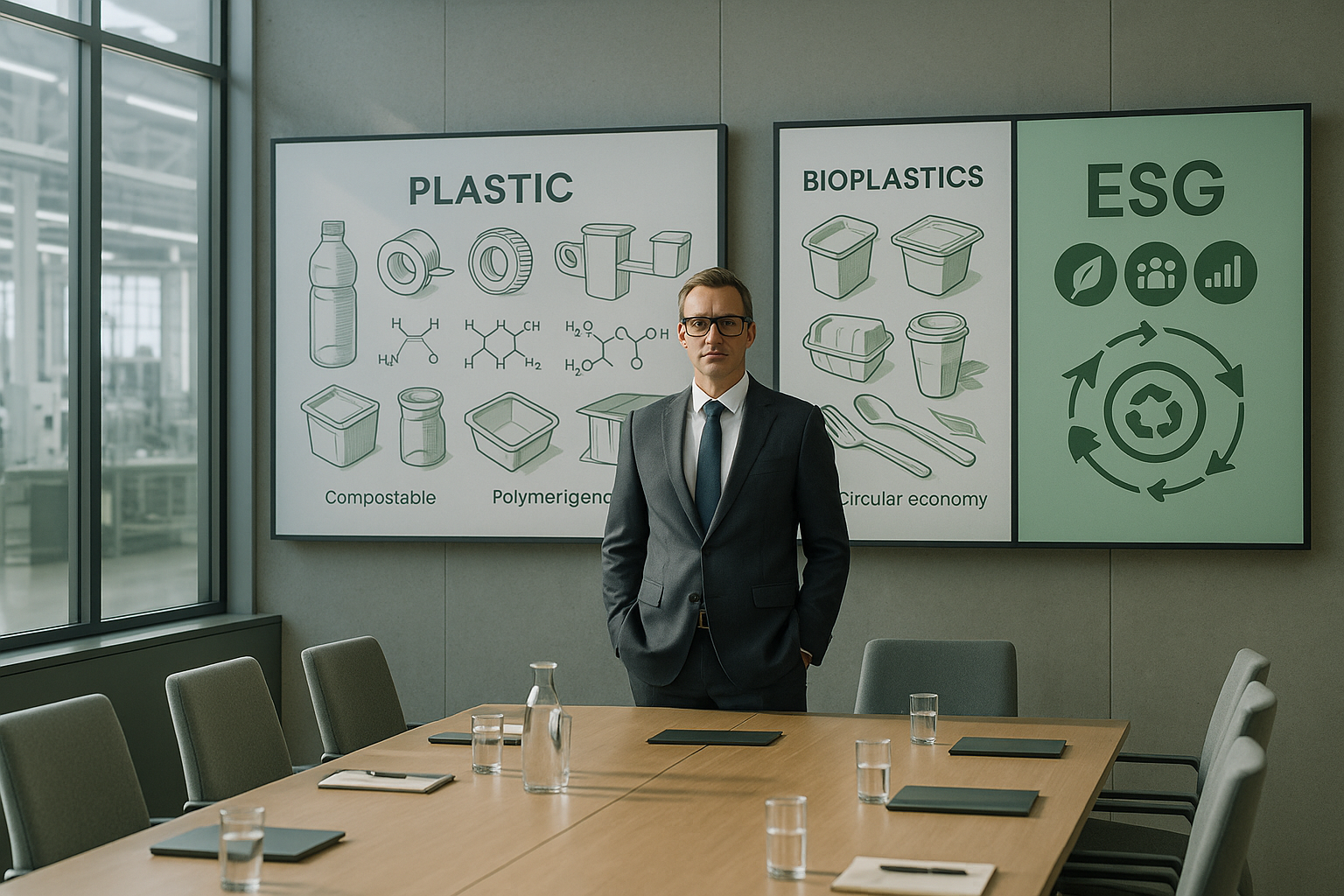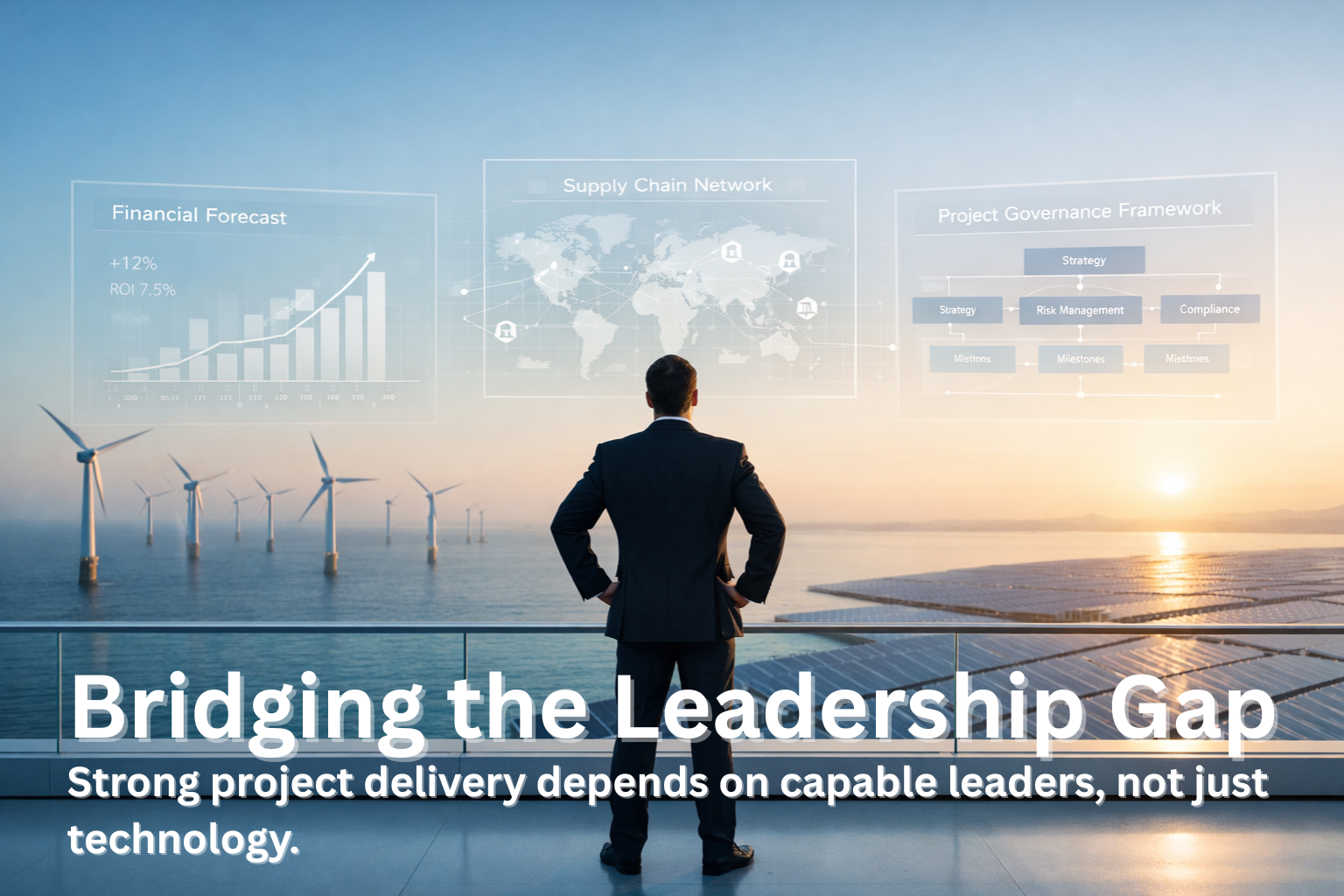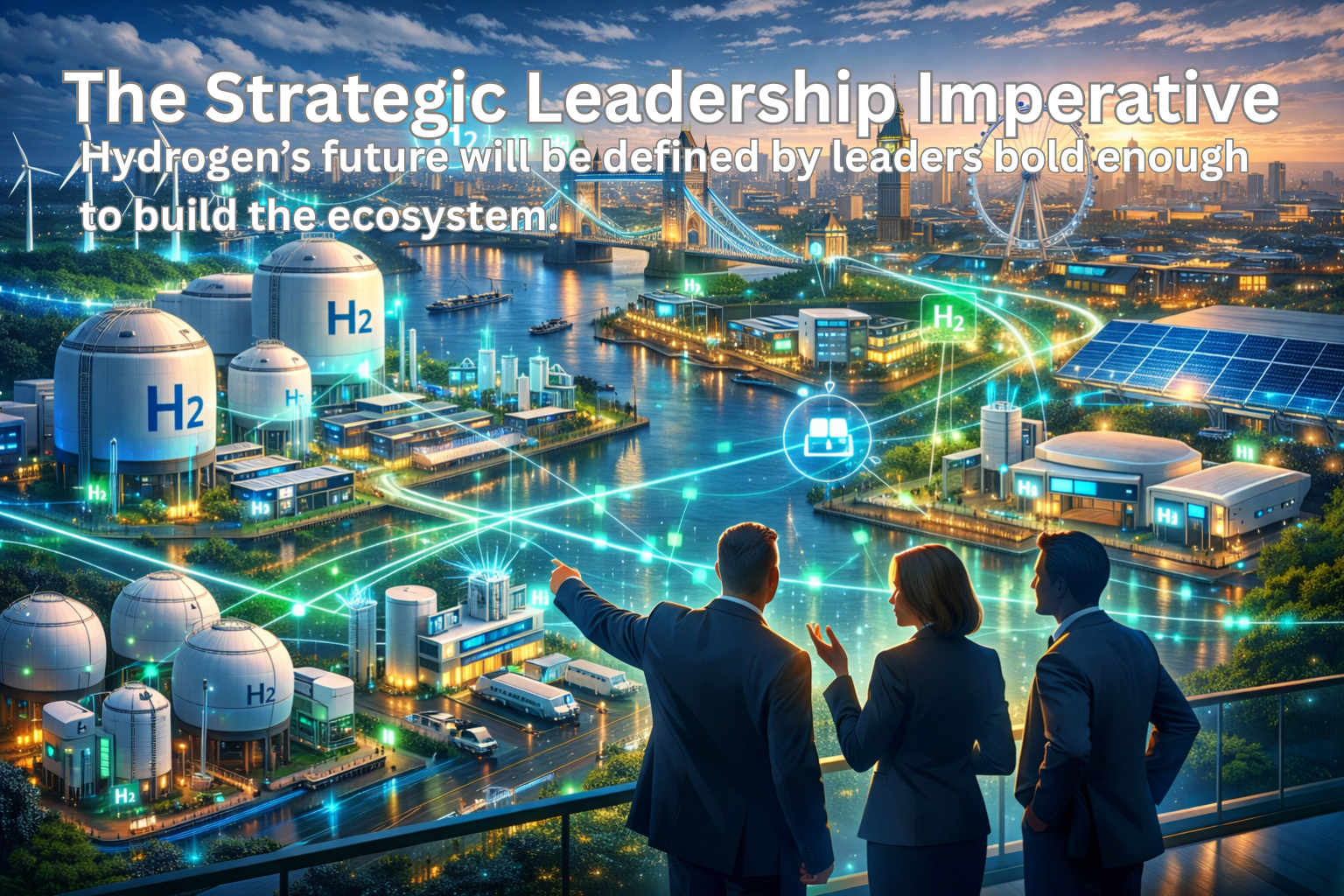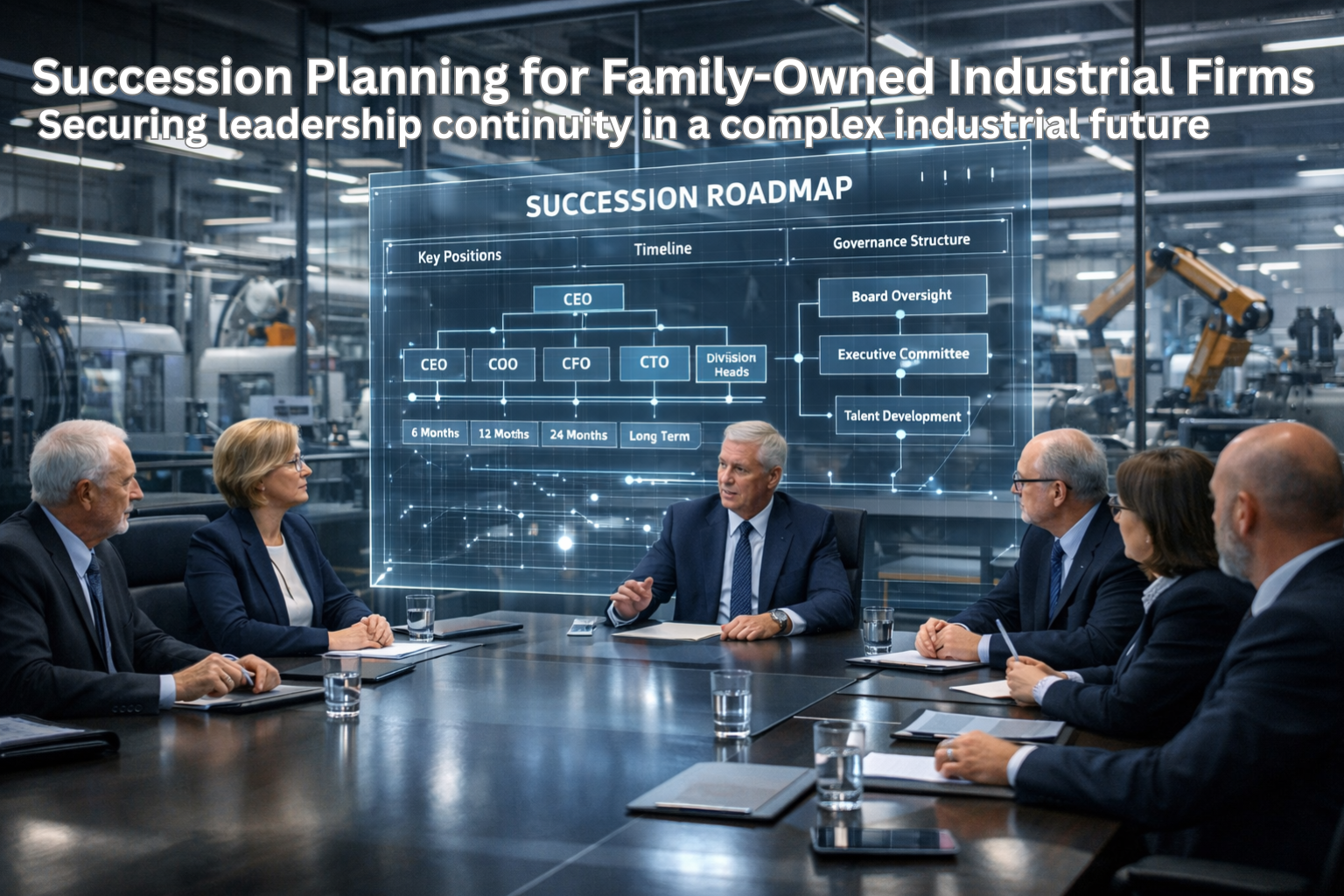Executive Leadership Transitions: From Traditional Plastics to Bioplastics Manufacturing 🌍♻️
Executive Leadership Transitions: From Traditional Plastics to Bioplastics Manufacturing 🌍♻️

Why Leadership Matters in the Plastics-to-Bioplastics Revolution
As sustainability moves from a “nice-to-have” to an essential business imperative, the manufacturing sector is undergoing a profound transformation. For companies within the plastics industry, the shift to bioplastics represents far more than a material change, it requires a complete reimagining of business models, value chains, and above all, leadership.
With the bioplastics market accelerating due to regulatory pressures and consumer demand for greener solutions, the need for experienced, adaptable executive talent has never been greater. This article explores the evolving leadership requirements within this sector, talent pipelines, and how organisations can successfully manage this critical transition.
Bioplastics: The New Frontier in Manufacturing 🌱
Bioplastics, plastics derived from renewable, biological sources are rapidly becoming the future of sustainable manufacturing. Offering a significantly reduced environmental footprint, they align perfectly with global decarbonisation goals and the circular economy.
However, transitioning from petrochemical-based plastics to bioplastics presents operational and commercial challenges. For many organisations, success depends on securing leaders capable of guiding teams through this complex transformation.
The Changing Face of Executive Leadership 👩💼👨💼
What’s New in Bioplastics Leadership?
While many core skills from traditional plastics manufacturing remain relevant, bioplastics leadership demands a broader and more specialised skillset. Executives must combine their knowledge of large-scale manufacturing and commercialisation with expertise in:
- Biotechnology and Green Chemistry: Understanding bio-based polymers and fermentation processes.
- Sustainability and ESG: Navigating evolving regulations and embedding sustainability in business strategy.
- Agricultural and Renewable Supply Chains: Managing often complex new sourcing models.
- Innovation and Change Management: Driving cultural and operational change in legacy organisations.
- Circular Economy Thinking: Developing resource-efficient, closed-loop business models.
Skills That Transfer from Traditional Plastics
Executives from traditional plastics bring valuable experience in process optimisation, compliance, operations, and commercial leadership. What distinguishes successful leaders is their ability to adapt, learn, and apply these skills within the rapidly evolving sustainability landscape.
Mapping the Talent Pipeline 🔍
Where Will Tomorrow’s Bioplastics Leaders Come From?
Research identifies three primary talent pools:
- Traditional Plastics Manufacturers: Senior leaders with operational and commercial expertise who demonstrate adaptability and embrace innovation.
- Biotechnology and Startups: Leaders from bio-based startups or R&D backgrounds with strong scientific credentials and entrepreneurial drive.
- Hybrid Corporates: Executives from FMCG and packaging sectors spearheading sustainability initiatives.
Typical Leadership Transitions
- CEO/Managing Director: Commercial leaders moving from traditional plastics to bioplastics scale-ups, bringing strategic vision and operational rigour.
- Chief Technology Officer: R&D leaders applying polymer science and biotechnology knowledge to new processes.
- Operations Director: Manufacturing experts adapting to bio-based production and renewable supply chains.
- Commercial Director: Sales and marketing professionals driving sustainable value propositions.
What This Means for Employers 🏢
- Broaden Candidate Criteria: Look beyond sector-specific experience to leaders proven in managing change.
- Invest in Assessment: Evaluate adaptability, learning agility, and alignment with sustainability goals.
- Emphasise Purpose: Attract candidates motivated by driving meaningful change rather than mere career progression.
- Partner with Research-Led Search Firms: Utilise research-driven recruitment to map talent beyond traditional sectors, uncovering passive candidates.
What This Means for Executives 🎯
- Upskill Continuously: Develop expertise in biotechnology, sustainability frameworks, and emerging supply chain models.
- Showcase Adaptability: Highlight experience leading innovation and transformation.
- Build New Networks: Engage with sustainability forums, bioplastics events, and professional groups to stay ahead.
How a Research-Led Approach Adds Value 📊
A research-led executive search firm provides unique insights into the bioplastics talent ecosystem. By mapping leadership movements between traditional plastics, startups, and hybrid corporates, companies gain a strategic edge in attracting and retaining top talent.
This approach transcends database-driven recruitment by delivering transparency, rigour, and a truly consultative service, essential for navigating the complexities of the plastics-to-bioplastics transition.
Conclusion
The journey from traditional plastics to bioplastics is as much a leadership challenge as a technical one. Success depends on identifying, attracting, and empowering executives who can bridge established manufacturing expertise with the demands of a rapidly evolving sustainability-focused market.
The future is promising for companies and leaders ready to embrace this opportunity. The time to act is now.
For confidential advice on your organisation’s leadership needs or to explore bioplastics career opportunities, contact the Wyman Bain team today.



